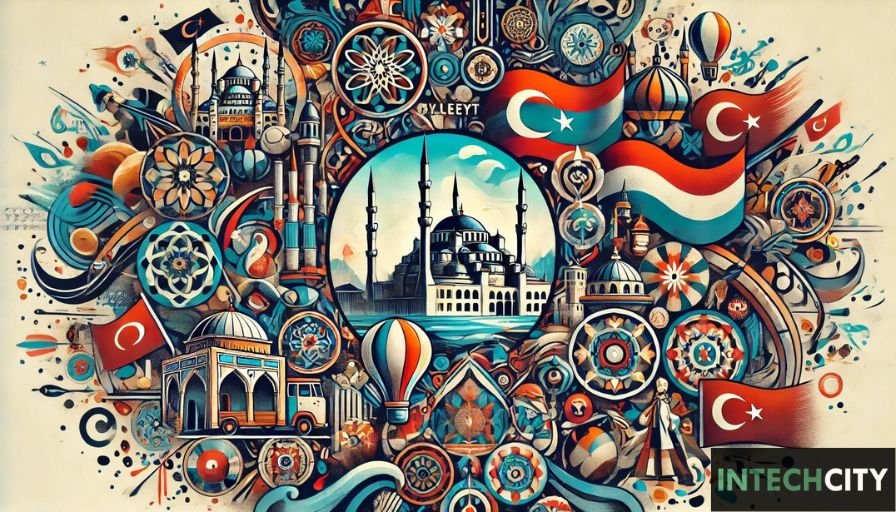Mıllıeyt is a concept deeply embedded in Turkish culture, encapsulating notions of national identity, unity, and cultural heritage. This article explores the multifaceted nature of mıllıeyt, its historical roots, its role in contemporary Turkish society, and its influence on various aspects of life, from fashion and art to politics and public opinion.
What is Mıllıeyt?
Mıllıeyt refers to the collective national identity and cultural ethos of Turkey. It embodies the shared values, traditions, and historical experiences that bind the Turkish people together. Unlike the more politically charged term “nationalism,” mıllıeyt emphasizes cultural unity and inclusivity, fostering a sense of belonging and community.
Historical Background
Origins
The concept of mıllıeyt has evolved over centuries, influenced by Turkey’s rich history and diverse cultural tapestry. It draws from the country’s Ottoman heritage, Islamic traditions, and the secular principles established by Mustafa Kemal Atatürk, the founder of modern Turkey.
Evolution Through Time
- Ottoman Era: Mıllıeyt during the Ottoman Empire was characterized by a diverse yet unified cultural identity, incorporating various ethnicities and religions.
- Republican Period: The establishment of the Turkish Republic in 1923 marked a shift towards a more homogeneous national identity, with mıllıeyt focusing on Turkish language and culture as central elements.
- Modern Day: Today, mıllıeyt continues to evolve, reflecting contemporary values of diversity, democracy, and global interconnectedness.
Mıllıeyt in Contemporary Society

Cultural Significance
Mıllıeyt plays a crucial role in preserving Turkey’s cultural heritage. It is expressed through various forms of art, literature, music, and traditional practices that celebrate Turkish history and identity.
- Festivals and Celebrations: Events like the Nevşehir Grape Harvest Festival and local barter festivals showcase mıllıeyt through traditional music, dance, and culinary traditions.
- Fashion: Turkish fashion designers incorporate traditional motifs, colors, and fabrics, blending them with modern trends to create unique styles that reflect mıllıeyt.
Political and Social Influence
Mıllıeyt significantly impacts public opinion and social cohesion in Turkey. It serves as a foundation for national unity and pride, influencing the way people perceive themselves and their country.
- Media and Education: Turkish media and educational institutions play a vital role in promoting mıllıeyt, shaping public consciousness and fostering a sense of belonging.
- Public Institutions: Government organizations reinforce the principles of mıllıeyt through policies and initiatives that emphasize cultural heritage and national identity.
Technological Impact
The digital age has transformed how mıllıeyt is expressed and shared. Social media platforms and digital technologies have broadened the reach of mıllıeyt, enabling more inclusive and dynamic participation.
- Social Media: Platforms like Facebook, Instagram, and Twitter allow users to share and celebrate mıllıeyt, fostering global conversations and community building.
- Digital Content: Modern technologies like augmented reality (AR) and virtual reality (VR) offer new avenues for experiencing and preserving Turkish culture.
Challenges and Criticisms
Cultural Appropriation
As mıllıeyt gains global attention, issues of cultural appropriation and misrepresentation arise. It is crucial to ensure that Turkish culture is respected and authentically represented in global contexts.
Ethical Concerns
The commercialization of mıllıeyt can lead to exploitation and marginalization of indigenous communities. Promoting ethical consumption and cultural sensitivity is essential to preserve the integrity of mıllıeyt.
The Future of Mıllıeyt
Adaptation and Innovation
Mıllıeyt is poised to adapt and evolve with changing times. Embracing technological advancements and global trends while maintaining core cultural values will be key to its future.
Educational and Cultural Initiatives
Educational programs and cultural exchanges can further promote understanding and appreciation of mıllıeyt. Supporting research and collaborations will ensure its continued relevance and impact.
Conclusion
Mıllıeyt is a dynamic and enduring concept that embodies the essence of Turkish identity and culture. Its influence permeates various aspects of life, fostering unity, pride, and cultural continuity. As Turkey navigates the complexities of the modern world, mıllıeyt will continue to serve as a beacon of heritage and resilience, shaping the nation’s future while honoring its rich past. Embracing mıllıeyt offers valuable insights into the evolving dynamics of contemporary society, highlighting the importance of cultural preservation and innovation.


